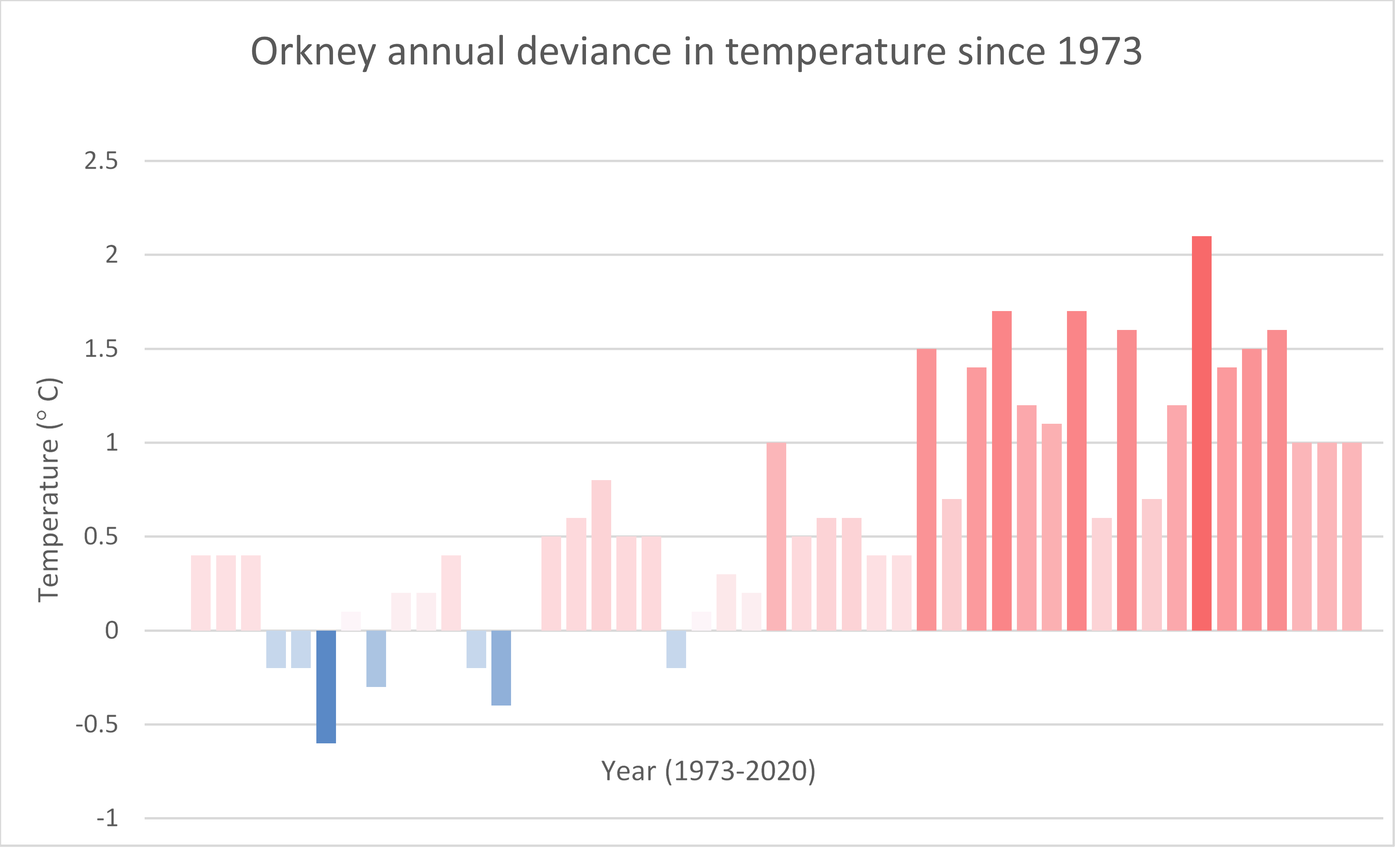 Orkney Climate Aware
Orkney Climate Aware
Climate Change is affecting communities all over the world, many of the effects of climate change can already be seen and be measured, including here in Orkney.
The Intergovernmental Panel on Climate change (IPCC) is made up of 195 governments and pre-released their 6th Assessment report in August 2021, ahead of the COP26 conference which took place in November 2021 in Glasgow, Scotland.
|
The IPCC state in the sixth assessment report that: “It is unequivocal that human influence has warmed the atmosphere, ocean and land. Widespread and rapid changes in the atmosphere, ocean, cryosphere and biosphere have occurred.”. |

As part of the legacy of COP26, COSLA, the Improvement Service and the Sustainable Scotland Network came together to capture the climate change efforts and initiatives led by councils across Scotland. The case studies submitted by Scotland’s 32 local authorities can be accessed on the COSLA website.
Orkney is not immune to the impacts of climate change and it is important that we gain an understanding of what the most likely impacts are going to be and how we best support to minimise disruption as a result.
Even Orkney has been warming along with the rest of the world too. Variance from the baseline measurement in 1973 can be seen in the figure below.
To help better understand how climate change is affecting us Orkney Climate Aware has been established to create a means of holding conversation around some of the most pressing climate topics. Orkney Climate Aware looks to support people and organisations across the public to take actions to reduce emissions, adapt and support action against climate change. An annual summary of progress will be available from 2022.
Orkney has a world leading reputation in developing renewable energy projects it would be great to further extend this pedigree into tackling climate change and ensuring Orkney and Orcadians have the best chance in developing appropriate and proportionate action against climate issues.
Climate Aware stands for:
A – Action: Ensuring that Orkney puts data and plans into action to reduce use of fossil fuels and to ensure that we mitigate the effects of climate change appropriately.
W – Weather: Understand how weather patterns are changing in Orkney and the effect that has on biodiversity, industry and communities. Extreme weather events including storms and flooding are predicated to increase in frequency. A change in weather patterns can affect the growing season too, more data should be analysed to assess this. Everything from agriculture, food and drink to transport and tourism are likely to be impacted by changing weather.
A – Adaptation: It is unequivocal that even if we stopped releasing greenhouse gasses from today, society still faces some disruption from climate change and greenhouse gases to date. Orkney specific adaptation plan will be developed outlining the key risks and potential solutions to climate disruption that will be unavoidable.
R – Resilience: is about being prepared for disruptions associated with a changing climate or ‘weathering the storm’ as we understand locally. The risks for individuals, communities, businesses and the wider ecosystem are likely to be different. It is imperative that as a community, we are prepared to cope with extreme weather, flooding, sea-level rise and other climate impacts.
E – Environment: Orkney is world famous for it’s natural environment, it’s unique species like the Orkney vole and the Primula Scotica. There have already been a decline some bird populations attributed to climate change and there have been a number of invasive species that risk the natural ecosystem. Orkney also relies on it’s natural resources to provide energy from renewables and to provide food to eat and as an export to support the local economy. It is imperative that the environment is not only protected but enriched as we tackle climate change.





